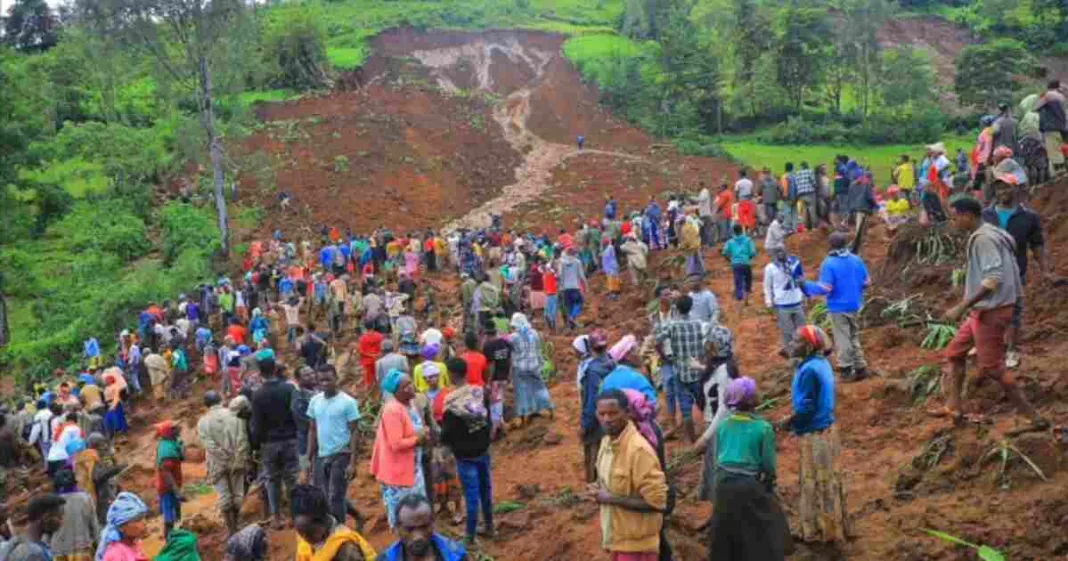In a catastrophic event, over 229 people have been reported dead due to mudslides triggered by torrential rain in south-western Ethiopia, making it the deadliest such disaster in the Horn of Africa country. The Kencho Shacha Gozdi district authorities have warned that the death toll could rise as rescue efforts continue. Residents are desperately digging through the debris with shovels and bare hands in hopes of finding survivors.
Rescue Efforts Turn Fatal
The tragedy is compounded by the fact that many of the victims were part of a search and rescue team. These individuals had been working tirelessly to find survivors from an earlier mudslide that occurred on Sunday night. On Monday, a second landslide buried these rescue workers, marking a devastating blow to the community and rescue operations. Markos Melese, the Director of the Disaster Response Agency in Gofa Zone, confirmed that many people are still unaccounted for, adding to the uncertainty and despair.
Read More: Ethiopia’s historic plane Tsehay returned after 90 Years
Heart-Wrenching Scenes
Eyewitness accounts and images shared by local authorities depict harrowing scenes. Children have been found clinging to the bodies of their deceased family members, having lost their parents and siblings in the disaster. Markos Melese described these gut-wrenching moments, underscoring the immense emotional toll on the survivors. Moussa Faki Mahamat, chairperson of the African Union Commission, expressed condolences and solidarity with the victims’ families, emphasizing the need for continued rescue efforts and support for the displaced.
Climate Change
The mudslides are part of a broader pattern of increasing vulnerability to climate change in Ethiopia and other East African countries. The region has been experiencing significant shifts in weather patterns, with altered onsets and durations of dry and wet seasons. The United Nations Office for the Coordination of Humanitarian Affairs reported major flooding and infrastructural destruction in Gofa Zone between April and May, which displaced over a thousand people. The heavy rains of November last year also caused considerable damage, leading to the deaths of dozens and displacing hundreds of thousands.
Historical Context and Previous Disasters
This disaster is not an isolated incident. In 2016, a similar mudslide in Wolaita, another region in southern Ethiopia, claimed the lives of 41 people. The southern region has experienced multiple landslides in recent years, with at least 32 people killed in 2018 due to two separate incidents within a week of each other. These recurring disasters highlight the ongoing and escalating risk posed by climate change to the region.
International Aid
The local community, despite their grief and loss, continues to show resilience. People are using whatever means they have to search for survivors, from shovels to bare hands, demonstrating remarkable solidarity and determination. The international community has also begun to respond. The African Union and other international bodies have extended their support, emphasizing the need for comprehensive disaster response strategies and long-term climate resilience measures.
Read More: Muslim World League Secretary-General visits Ethiopia
The path to recovery for the Gofa Zone and other affected areas will be challenging. Immediate needs include providing shelter, food, and medical care to the survivors. Long-term strategies must focus on building climate resilience, improving infrastructure, and enhancing early warning systems to mitigate the impact of future natural disasters. As Ethiopia and other eastern African countries continue to grapple with the consequences of climate change, coordinated efforts at the local, national, and international levels will be crucial in safeguarding communities and reducing the human toll of such devastating events.













